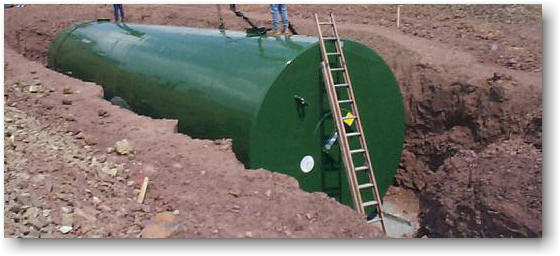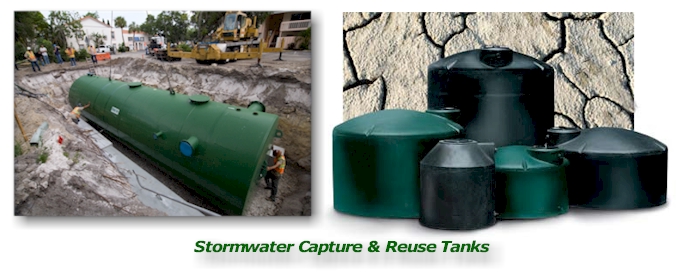|

Stormwater Capture and Reuse
systems encompasses a wide variety of water storage techniques designed
to “capture” precipitation, hold it for a period of time, and reuse the
water.
Kimball
Environmental
will design and
install a cost-effective, efficient, integrated water management system
that will maximize return on investment.

Green Roof Systems
will capture and hold
stormwater thereby reducing runoff. Green Roofs also reduce HVAC costs,
dramatically extend
the life of the roof (50-60 years) and provide numerous additional
benefits.
Stormwater
Harvesting
Collected
rainwater can augment primary water sources. Vertical Storage,
Pervious Pavement, Underground Storage/Infiltration systems, Cisterns,
Rain Barrels and similar devices are used to capture stormwater from the
roofs of buildings. These systems can reduce potable water needs for
uses such as irrigation and fire protection while also reducing
stormwater discharges.

Storage and Reuse
Techniques
range from small, residential systems such as Rain Barrels that are
maintained by the homeowner to supplement garden needs, to large,
“vertical storage” or "underground Storage" units that can provide
Greywater, irrigation and/or firefighting needs.
Storage/reuse techniques are useful in urban areas where there is little
physical space to manage storm water.

Stormwater
Infiltration Systems
Systems
When an area is developed, buildings and
parking areas overcome the natural absorption area where the rain would
normally be infiltrated back into the ground. These impervious
structures offset the typical absorption pattern. As a result, when the
rain is not allowed to penetrate it begins to build up, may cause
ponding or flooding and/or begins to flow to another location.
By using infiltration chambers, rainwater
is collected in inlet structures and piped to an underground
retention/detention system. Infiltration chambers may be used as
underground retention/detention systems, as replacements for ponds,
concrete structures or pipe and stone installations. This technology
provides a complete stormwater management plan consisting of filtration,
conveyance, storage and infiltration.
System
Components
-
Vertical
Storage
– above ground
tanks, stand along
“towers”, or “fat downspouts" that usually rest against a building
performing the same capture, storage and release functions as cisterns
and rain barrels.
-
Underground Storage -
below ground
tanks, typically installed below grade adjacent to a building performing
the same capture, storage and release functions as cisterns and rain
barrels.
-
Infiltration
Systems
– Storage/infiltration may be
incorporated into elements such as parking lots, paths and walkways to supplement
irrigation with the use of structural plastic storage units.
-
Green Roofs
–
roof-top gardens that act like a sponge to
reduce the amount of water and/or pollutants that run off of your roof.
-
Cisterns
– large,
underground or surface containers designed to hold large volumes of
water (500 gallons or more). Cisterns may be comprised of fiberglass,
concrete, plastic, brick or other materials.
-
Pervious Pavement - a permeable
pavement surface with an underlying stone reservoir that temporarily
stores surface runoff before infiltrating into the subsoil. This porous
surface replaces traditional pavement, allowing parking lot runoff to
infiltrate directly into the soil and receive water quality treatment.
-
Porous Pavement - porous pavement
systems are constructed from interlocking, high strength blocks made
from recycled plastic that prevent soil compaction and provide load
support. Blocks are then filled with soil and seeded, or sodded.
|





